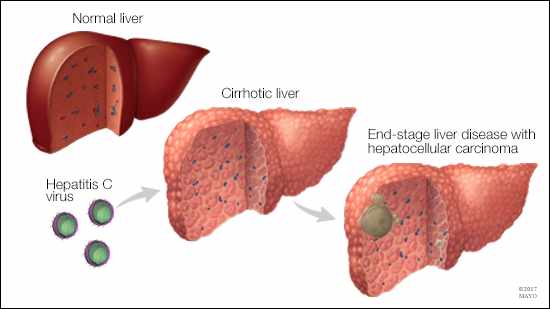-
Should you be tested for hepatitis?
 Millions of Americans are living with chronic hepatitis but most don't know they have the infectious disease. That's why the Centers for Diseases Control and Prevention (CDC) is promoting May 19 as Hepatitis Testing Day. In the U. S., the most common forms of the infection are hepatitis A, hepatitis B, and hepatitis C (HCV). Mayo Clinic infectious diseases specialist Dr. Stacey Rizza says all forms hepatitis are dangerous for the person infected and that HCV is of particular concern. She explains it's also an issue for the public.
Millions of Americans are living with chronic hepatitis but most don't know they have the infectious disease. That's why the Centers for Diseases Control and Prevention (CDC) is promoting May 19 as Hepatitis Testing Day. In the U. S., the most common forms of the infection are hepatitis A, hepatitis B, and hepatitis C (HCV). Mayo Clinic infectious diseases specialist Dr. Stacey Rizza says all forms hepatitis are dangerous for the person infected and that HCV is of particular concern. She explains it's also an issue for the public.
"If somebody gets cancer or gets diabetes or gets arthritis, that is a problem for them, but it doesn’t, in fact, impact anybody else in their health. Whereas in infectious diseases, as well as hepatitis C, if somebody gets hepatitis C, not only could it impact them, but they could potentially transmit it to others so it has more of a domino effect in society," says Dr. Rizza. "That’s why we care so much about infectious diseases, and decreasing the incidence so that there are fewer people to infect other people."
Watch: Dr. Stacey Rizza talks about hepatitis C.
Baby boomers account for 75 percent of HCV infections; however, a new demographic is rising. The opioid crisis in the U.S. has been linked to increases in both hepatitis B and hepatitis C in people under the age of 40, specifically those who inject drugs. The CDC says these infections have reached epidemic proportions in many areas of the nation.
"Unfortunately, our country has seen an increase in opioid use, which many times leads to harder drugs such as heroin when it’s difficult to get the prescription medicines, and many people inject or shoot up their heroin," says Dr. Rizza. "That leads to using needles and frequently sharing needles with other people, which puts them at risk for hepatitis C."
Those who should get tested include:
- Those born between 1945 and 1964. Baby boomers are five times more likely to have HCV than other adults.
- Persons who have ever injected illegal drugs, including those who injected only once many years ago.
- Those who have had an organ transplant, or blood transfusion before 1992
Dr. Rizza says all baby boomers should request a blood test for HCV from their provider, as well as "people who have tattoos, people who have snorted cocaine, people who have injected drugs and shared needles, people who were born to someone with hepatitis C should also be tested for hepatitis C."
HCV can cause liver disease, which can lead to end stage liver disease. Dr. Rizza says four million people in the U.S. are infected with the highly contagious disease, and more than 170 million are infected worldwide. HCV is treatable, but about half of people don't know they're infected, mainly because they have no symptoms, which can take decades to appear.
Are you at risk? Find out by taking the Hepatitis Risk Assessment offered by the CDC.







